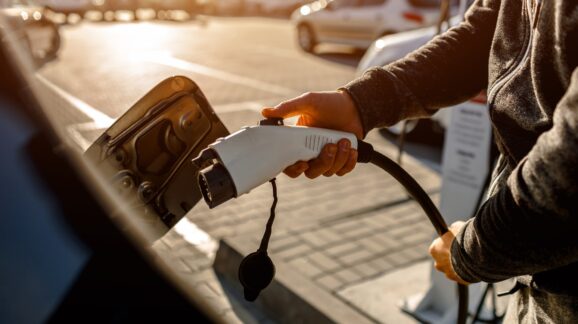What I told the EPA about its illegal de facto electric vehicle mandates

Photo Credit: Getty
Yesterday I submitted comments to the Environmental Protection Agency (EPA) on its proposed greenhouse gas (GHG) emission standards for model years (MYs) 2027-2032 passenger cars, light trucks, and medium-duty trucks. The proposed standards are the latest phase of a longstanding unlawful agenda of market-rigging interventions. They should be withdrawn.
My comments develop the following points:
- The proposed standards are de facto electric vehicle (EV) mandates. Automakers cannot comply without rapidly phasing out gasoline-powered vehicles (including popular hybrids like the Prius) and rapidly increasing sales of battery electric vehicles (BEVs), plug-in hybrid electric vehicles (PHEVs), and fuel cell vehicles, or, simply put, electric vehicles (EVs). The proposed standards are projected to increase EV market share from 39 percent in 2032 under the current policy baseline to 67 percent.
- The EPA’s proposal will restrict consumer choice, make automakers increasingly dependent on corporate welfare (Ford, for example, reportedly loses $64,446 on every EV it sells), and make new cars increasingly unaffordable to middle-income households. The downsides of EVs (long charging times, limited range, absence of charging facilities in many apartment complexes) often make them impractical for single-car households (about one-third of the U.S. population), many of which are low-income.
- The proposal flouts the Supreme Court’s major-questions doctrine. The EPA attempts to settle major questions of public policy and assume the powers of an industrial policy czar without a clear authorization from Congress, just as it did when promulgating the Obama administration’s so-called Clean Power Plan, which the Court vacated in West Virginia v. EPA (June 2022).
- The EPA touts the 2021 Bipartisan Infrastructure Bill (BIL) and 2022 Inflation Reduction Act (IRA) as “pivotal milestones” in the transition to a “clean transportation” future, potentially fostering the perception that the proposed standards merely effectuate congressional intent. That is incorrect. Neither statute authorizes EV mandates or expands any of the EPA’s regulatory powers.
- The proposed GHG standards are fleet-average standards. As explained by CEI’s initial and reply briefs in Texas v. EPA, Clean Air Act tailpipe emission standards apply to individual vehicles, not to fleets on average. Thus, the proposed standards are also unlawful on statutory grounds.
- The only agency Congress has authorized to set fleet-average standards is the National Highway Traffic Safety Administration (NHTSA), and the 1992 Energy Policy Act prohibits NHTSA from making corporate average fuel economy (CAFE) standards so stringent that automakers cannot comply without electrifying their fleets. That is a further reason why the EPA, which has no authority to establish fleet-average standards, may not compel EV sales.
- Much of the recent growth in EV sales is driven by State zero-emission vehicle (ZEV) programs, which the EPA approved in January 2013 and March 2022. State ZEV mandates are substantially “related to” fuel economy standards and, thus, are preempted by the Energy Policy Conservation Act (EPCA). The proposed rule is the latest phase of a longstanding unlawful agenda of market-rigging interventions. It should be withdrawn.